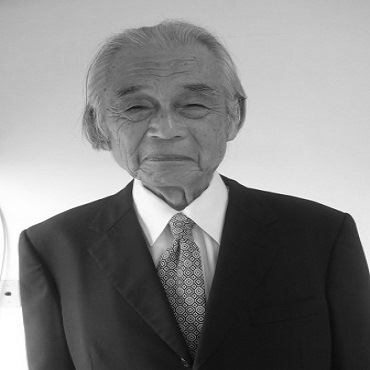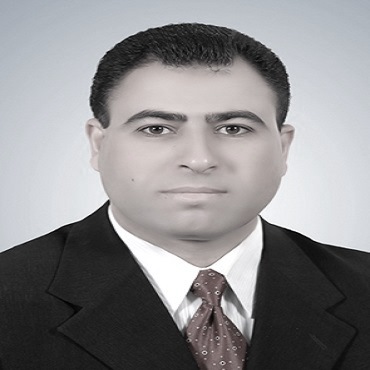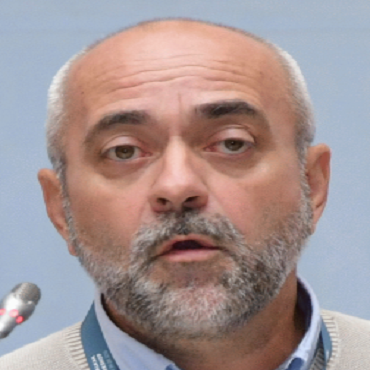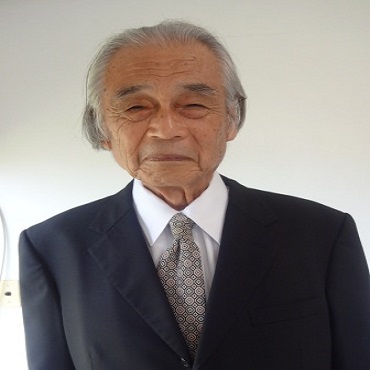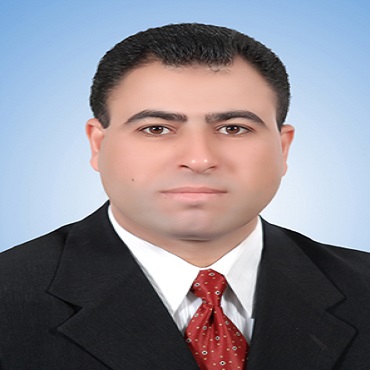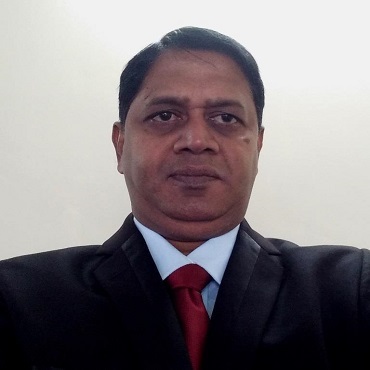
Aquaculture 2019
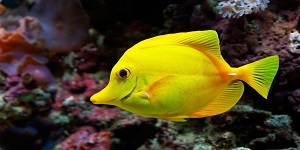
Theme: Transformations in Fisheries and Aquaculture
Aquaculture Conference is glad to welcome the participants from all over the world to attend the prestigious 3rd World Aquaculture & Marine Biology Congress scheduled during June 17-18, 2019 in Osaka, Japan. The gathering gives the worldwide field to global researchers to voice their exploration discoveries to the world. With agents from all the significant nations in participation, the climate is energizing with the open and cordial association between participants. Aquaculture meeting brings together an International mix of experts like academicians, scientists, and business professionals, the general public, current and prospective fish farmers to share information and ideas about the development of aquaculture & marine biology. Attendees will learn about several topics relevant to aquaculture & marine biology, and find out about the current aquaculture equipment and products by browsing the on-going Exhibition. Everyone with an interest in aquaculture, marine science, including prospective growers, researchers, teachers, students or agency persons with jobs related to aquaculture & marine biology can attend the conference. Marine Biology Congress is also suitable to persons who sell goods or services to the aquaculture & marine biology industry.
Session 1: Aquatic Ecosystem & Aqua Farming
Ecology is the scientific study of how organisms interact with each other and with their environment. This includes relationships between individuals of the same species, between different species, and between organisms and their physical and chemical environments. Aquatic ecology includes the study of these relationships in all aquatic environments, including oceans, estuaries, lakes, ponds, wetlands, rivers, and streams. The boundaries of an aquatic ecosystem are somewhat arbitrary, but generally enclose a system in which inflows and outflows can be estimated. Ecosystem ecologists study how nutrients, energy, and water flow through an ecosystem.
Aquaculture Congress | Marine Biology Conference | Aquaculture Meeting | Fisheries Conference | Asian Aquaculture Conferences | Marine Biology Meeting | Aquaculture Conference | Aqua Conference 2019 | Aquaculture and Marine Biology Conferences 2020
Session 2: Sustainable Aquaculture
Aquaculture is currently playing, and will continue to play, a big part in boosting global fish production and in meeting rising demand for fishery products. Aquaculture is projected to be the prime source of seafood as demand grows from the global middle class and wild capture fisheries approach their maximum take. Sustainable aquaculture is a dynamic concept and the sustainability of an aquaculture system will vary with species, location, societal norms and the state of knowledge and technology.
Aquaculture Congress | Marine Biology Conference | Aquaculture Meeting | Fisheries Conference | Asian Aquaculture Conferences | Marine Biology Meeting | Aquaculture Conference | Aqua Conference 2019 | Aquaculture and Marine Biology Conferences 2020
Session 3: Aquatic Diseases & Immunity
Aquaculture is the fastest growing sector of animal protein production and now accounts for 47-50 percent of the world's aquatic animal food supply. Aquaculture production helps to reduce pressure on wild fisheries caused by overfishing. Diseases have emerged as a significant problem due to the high stocking densities used in intensive aquaculture. These diseases may devastate the farmed aquatic animals and spread to wild populations.
Aquaculture Congress | Marine Biology Conference | Aquaculture Meeting | Fisheries Conference | Asian Aquaculture Conferences | Marine Biology Meeting | Aquaculture Conference | Aqua Conference 2019 | Aquaculture and Marine Biology Conferences 2020
Session 4: Aquaculture Nutrition & Supplies
Aquaculture Nutrition provides a global perspective on the nutrition of all cultivated aquatic animals. Fish are consumed as food by many species, including humans. It has been an important source of protein and other nutrients for humans throughout recorded history. Health experts have long touted the nutritional benefits of fish: These sea creatures rank high on lists of the best sources of heart-healthy omega-3 fatty acids, high-quality protein, metabolism-friendly selenium, energy-boosting Vitamin B12, and inflammation-fighting Vitamin D. Omega-3s are essential nutrients that help ward off heart disease, diabetes, and metabolism-slowing inflammation, and they’re primarily found in fish.
Aquaculture Congress | Marine Biology Conference | Aquaculture Meeting | Fisheries Conference | Asian Aquaculture Conferences | Marine Biology Meeting | Aquaculture Conference | Aqua Conference 2019 | Aquaculture and Marine Biology Conferences 2020
Session 5: Aquaculture Genetics & Biotechnology
Genetic analyses have much to offer fisheries managers, especially in the provision of tools enabling unequivocal specimen identification and assessment of stock structure. Biotechnology provides powerful tools for the sustainable development of aquaculture, fisheries, as well as the food industry. Increased public demand for seafood and decreasing natural marine habitats have encouraged scientists to study ways that biotechnology can increase the production of marine food products, and making aquaculture as a growing field of animal research. Biotechnology allows scientists to identify and combine traits in fish and shellfish to increase productivity and improve quality. Scientists are investigating genes that will increase production of natural fish growth factors as well as the natural defense compounds marine organisms use to fight microbial infections.
Aquaculture Conference | Marine Biology Conference | Aquaculture Meetings | Aquaculture & Marine Biology Conference | Fisheries Aquaculture Congress | Marine Biology Conference | Aquaculture Meeting | Fisheries Conference | Asian Aquaculture Conferences | Marine Biology Meeting | Aquaculture Conference | Aqua Conference 2019 | Aquaculture and Marine Biology Conferences 2020
Session 6: Marine Life & Conservation
Marine life is a vast resource, providing food, medicine, and raw materials, in addition to helping to support recreation and tourism all over the world. Marine life helps determine the very nature of our planet. Marine organisms contribute significantly to the oxygen cycle, and are involved in the regulation of the Earth's climate. Shorelines are in part shaped and protected by marine life, and some marine organisms even help create new land.
Aquaculture Congress | Marine Biology Conference | Aquaculture Meeting | Fisheries Conference | Asian Aquaculture Conferences | Marine Biology Meeting | Aquaculture Conference | Aqua Conference 2019 | Aquaculture and Marine Biology Conferences 2020
Session 7: Freshwater Biology
Freshwater biology is the scientific biological study of freshwater ecosystems and is a branch of limnology. This field seeks to understand the relationships between living organisms in their physical environment. These physical environments may include rivers, lakes, streams, or wetlands. This discipline is also widely used in industrial processes to make use of biological processes such as sewage treatment and water purification. Water flow is an essential aspect to species distribution and influence when and where species interact in freshwater environments.
Aquaculture Congress | Marine Biology Conference | Aquaculture Meeting | Fisheries Conference | Asian Aquaculture Conferences | Marine Biology Meeting | Aquaculture Conference | Aqua Conference 2019 | Aquaculture and Marine Biology Conferences 2020
Track 8: Coastal and Marine Ecosystem
Wave action hit the shoreline constantly with different strengths which shape the coastal lines resulting into various land levels. The sand dunes are made by atmospheric wind which blows in beach sand. Sedimentation in rocks, plants, animal and marine life is affected by warm weather condition. The salt is taken from the sea by wind and formation of salt crystals in the small pores in rocks leads to various rock texture. Due to the climatic change the sea levels rise and fall.
Aquaculture Congress | Marine Biology Conference | Aquaculture Meeting | Fisheries Conference | Asian Aquaculture Conferences | Marine Biology Meeting | Aquaculture Conference | Aqua Conference 2019 | Aquaculture and Marine Biology Conferences 2020
Track 9: Aquaculture Engineering & Waste Management
Aquaculture engineering is the branch of agricultural engineering that studies cultured aquatic species and the production systems used in their culture. Study, research and development in this area ranges from low intensity man-made pond systems to highly intensive recirculating aquaculture systems. Species cultured in these systems range from tilapia to salmon and can also include shellfish or seaweed. Ponds make up a large portion of aquaculture production systems, along with sea cages, and tank systems.
Aquaculture Congress | Marine Biology Conference | Aquaculture Meeting | Fisheries Conference | Asian Aquaculture Conferences | Marine Biology Meeting | Aquaculture Conference | Aqua Conference 2019 | Aquaculture and Marine Biology Conferences 2020
Track 10: Seafood Processing
Marine Food is any sort of ocean life thought to be food by humans. food conspicuously includes fish and shellfish. Shellfish embody varied species of molluscs, crustaceans, and echinoderms. traditionally, ocean mammals like whales and dolphins are consumed as food, although that happens to a lesser extent in present. Edible ocean plants, like some alga and microalgae, square measure wide devoured as food round the world, particularly in Asia (see the class of ocean vegetables). In North America, though not usually within the uk, the term "marine food" is extended to water organisms devoured by humans, therefore all edible aquatic life could also be said as food.
Aquaculture Congress | Marine Biology Conference | Aquaculture Meeting | Fisheries Conference | Asian Aquaculture Conferences | Marine Biology Meeting | Aquaculture Conference | Aqua Conference 2019 | Aquaculture and Marine Biology Conferences 2020
Aquaculture or aqua-farming is the exploration of cultivating or developing of sea-going living beings, including fish, scavengers, sea-going plants, organisms, green growth and other amphibian life shapes for the human utilization. It is the most established, real sustenance source. Expanding human populace there by expanding interest for sustenance, medical advantages of sea-going nourishment are the vital development elements of the worldwide aquaculture advertise. Aquaculture showcase was esteemed at $169 billion USD in the year 2015, and is relied upon to develop at a CAGR of 5.3% and it will reach $242 billion USD by 2022.
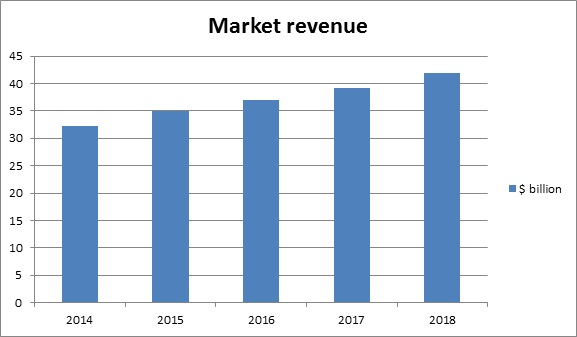
We always focus on building long-term partnerships with our speakers, delegates and sponsors to ensure that our programs are not only relevant but connect to the real world limitations, challenges and opportunities faced by our customers. Through a significant presence in each and every industry and geographical market our events leverage the latest insights to ensure they remain relevant and practical in today’s business environment. Our speakers/presenters and delegates represent the leading innovators in their respective fields, with a thirst for knowledge and a willingness to share both their success and failures.
Aquaculture Congress | Marine Biology Conference | Aquaculture Meeting | Fisheries Conference | Asian Aquaculture Conferences | Marine Biology Meeting | Aquaculture Conference | Aqua Conference 2019 | Aquaculture and Marine Biology Conferences 2020
Why Osaka, Japan?
Japan, "The Land of the Rising Sun" is contained four biggest islands: Honshu, Hokkaido, Kyushu and Shikoku, which make up around ninety-seven percent of Japan's property zone and frequently are alluded to as home islands. Osaka is a substantial port city and business focus on the Japanese island of Honshu. It is the capital city of Osaka Prefecture and the biggest segment of the Keihanshin Metropolitan Area. Arranged at the mouth of the Yodo River on Osaka Bay, Osaka is the second biggest city in Japan by daytime populace and the third biggest city by evening time populace, filling in as a noteworthy financial center point for the nation.
Japan being an island country has a populace of 128 million, a coastline of 29 751 km and an EEZ of around 4.05 million km², which is the 6th biggest on the planet. A mix of warm and chilly streams along the coasts in this manner making a standout amongst the most plentiful angling zones on the planet. Because of such topographical highlights, fisheries customarily assume a vital part in nourishment security in Japan, giving an enhanced scope of fish and fishery items which represented 61.2 kg for each capita yearly admission of the Japanese country in 2005. The aggregate fishery creation of Japan was 5 million tons (barring ocean growth) in 2007, out of which 766 000 tons were gotten from aquaculture. Japan represented the fifth biggest catch fishery maker on the planet in 2007.
Japan Fisheries Research and Education Agency, National Fisheries University of Japan, National Research Institute of Aquaculture, National Research Institute of Fisheries Science, National Research Institute of Far Seas Fisheries, National Research Institute of Fisheries and Environment of Inland Sea are a portion of the main foundations gave to augment innovative work on Aquaculture and Fisheries.
Global Agriculture & Aquaculture Universities:
- Iowa State University, USA
- Purdue University, USA
- Royal Agricultural University, England
- Harper Adams University, UK
- University of Reading, UK
- University of Aberdeen, Scotland
- University of St Andrews, UK
- Mendel University, Czech Republic
- Swedish University of Agricultural Sciences, Sweden
- University of Dubrovnik, Croatia
- Beijing Agricultural University, China
- Southwest University, China
- Nanjing Agricultural University, China
- Acharya N. G. Ranga Agricultural University, India
- Central Institute of Fisheries Education, India
- Bogor Agricultural University, Indonesia
- University Putra Malaysia, Malaysia
- Shinshu University, Japan
- University of Peradeniya, Sri Lanka
- King Saud University, Saudi Arabia
- American University of Beirut, Lebanon
- United Arab Emirates University, UAE
- University of Jordan, Jordan
- Qatar University, Qatar
- China Agricultural University, China
- Massey University, New Zealand
Global Agriculture & Aquaculture Research Centers & Associations:
- US Agricultural Research Service, USA
- World Aquaculture Society, USA
- Lethbridge Research and Development Centre, Canada
- United States Agricultural Society, USA
- Andalusian Center for Marine Science and Technology, Spain
- Consultative Group for International Agricultural Research, France
- Bioversity International, Italy
- Estonian Marine Institute, Estonia
- The Marine Institute, Ireland
- Marine and Food Technological Centre, Spain
- International Crops Research Institute for the Semi-Arid Tropics (ICRISAT), India
- WorldFish Center, Malaysia
- Bureau of Fisheries and Aquatic Resources, Philippines
- National Aquaculture Group Red Sea Aquaculture, Saudi Arabia
Global Agriculture & Aquaculture Companies:
- Kerry Group, Ireland
- Vilmorin, France
- Adler Seeds, US
- China Agri-Industries Holdings, China
- ContiGroup Companies, Belgium
- Case Corporation, US
- Golden State Foods, US
- Heritage Foods, India
- New Holland Agriculture, Italy
- John Deere Tractor, US
- CLAAS, Germany
- Pacific Andes, China
- EWOS, Norway
- Kyokuyo, Japan
- Charoen Pokphand Foods, Thailand
- Trident Seafood, USA
- Aquatic Ecosystem & Aqua Farming
- Sustainable Aquaculture
- Aquatic Diseases & Immunity
- Aquaculture Nutrition & Supplies
- Aquaculture Genetics & Biotechnology
- Marine Life & Conservation
- Freshwater Biology
- Coastal and Marine Ecosystem
- Aquaculture Engineering & Waste Management
- Seafood Processing
- Journal of Marine Biology & Oceanography
5 Organizing Committee Members
8 Renowned Speakers
Natalija Topic Popovic
Ruder Boskovic Institute
Croatia
Rozelindra Coz-Rakovac
Ruder Boskovic Institute
Croatia
Tomislav Smuc
Ruder Boskovic Institute
Croatia
Elzbieta Macioszek
Silesian University of Technology
Poland
M S Swaminathan
Founder Chairman and Chief Mentor, UNESCO
India
Shoichiro Ozaki
Ehime University
Japan
Said Elshahat Abdallah
Kafrelsheikh University
Egypt
T. Vaitheeswaran
DMI St. John the Baptist University
Malawi


